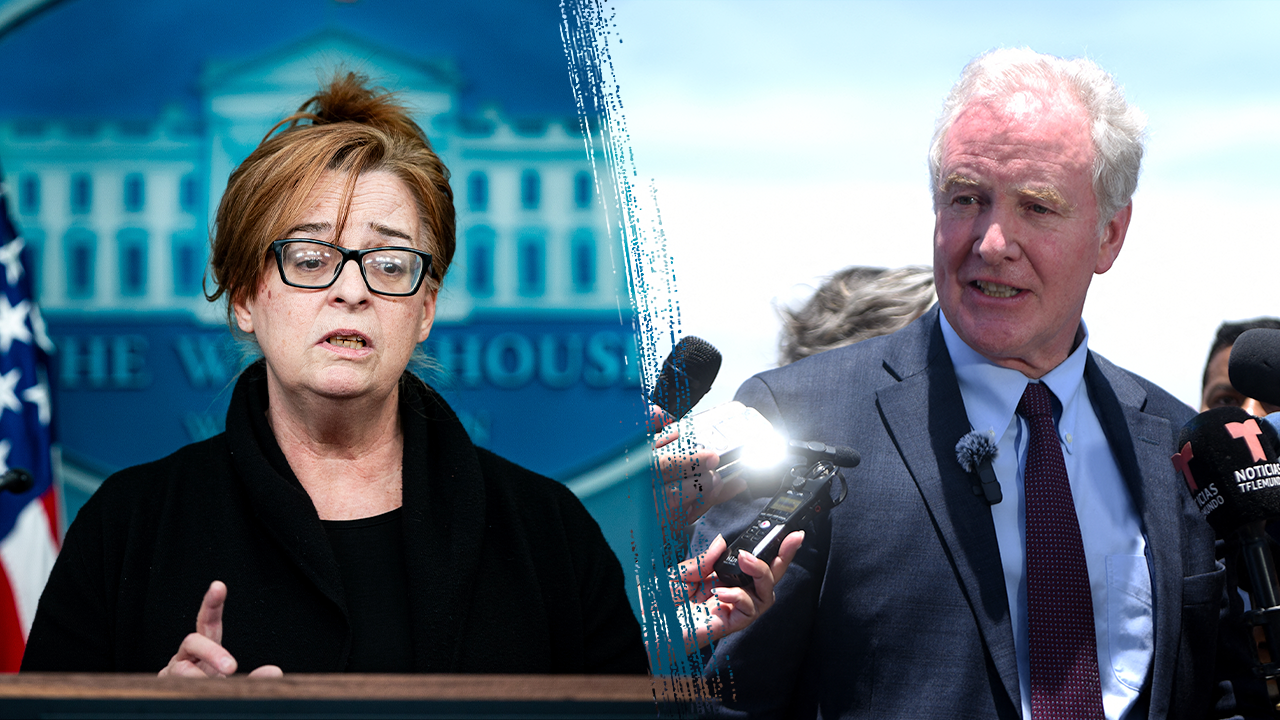Stocks tanked after Federal Reserve Chair Jerome Powell said President Trump’s surprisingly stiff tariffs could keep inflation higher for longer than previously expected — forcing the central bank to keep interest rates high.
The nation’s top central banker on Wednesday said Trump’s new wave of trade taxes are “significantly larger than anticipated,” adding that “the same is likely to be true of the economic effects, which will include higher inflation and slower growth.”
“Avoiding that outcome will depend on the size of the effects, on how long it takes for them to pass through fully to prices, and, ultimately, on keeping longer-term inflation expectations well anchored,” he continued.
“You would worry that that process will take some years and that the inflationary process might be extended.”
Investors ran for the exits after Powell spoke, with the Dow Jones Industrial Average tumbling as much as 949 points, before shaving the losses before the closing bell to finish down 699.57, or 1.7%. The S&P 500 and Nasdaq dropped 2.2% and 3.1%, respectively.
“I think people were expecting Powell to be neutral and he was hawkish instead,” Jim Carroll, senior wealth advisor at Ballast Rock Private Wealth in Charleston, SC, said about the additional losses in stocks in response to Powell’s appearance.
Powell added that the tariffs threaten to pose a “challenging scenario” that could force central bankers to choose between tamping down inflation and propping up the labor market.
“We may find ourselves in the challenging scenario in which our dual-mandate goals are in tension,” Powell said in prepared remarks at the Economic Club of Chicago, his second public speech since Trump unveiled the tariffs on April 2.
The president’s hefty trade taxes – a staggering 145% rate on Chinese goods, and a temporary 10% tax on most other nations while final rates are negotiated – could make it trickier to realize the Fed’s 2% inflation goal while keeping the labor market strong, according to Powell.
In March, the Fed projected two interest rate cuts in the second half of this year. That prediction came before the president unveiled his so-called “reciprocal” tariffs, which included harsher-than-expected rates on many nations.
Powell reiterated that the central bank does not need to rush to change policy as of yet – especially as the back-and-forth nature of tariff negotiations keeps the US economy in flux.
“As that great Chicagoan Ferris Bueller once noted, ‘Life moves pretty fast,’” Powell explained. “For the time being, we are well positioned to wait for greater clarity before considering any adjustments to our policy stance.”
Powell also warned of potentially slower economic growth.
“The data in hand so far suggest that growth has slowed in the first quarter from last year’s solid pace,” Powell said. “Despite strong motor vehicle sales, overall consumer spending appears to have grown modestly. In addition, strong imports during the first quarter, reflecting attempts by businesses to get ahead of potential tariffs, are expected to weigh on GDP growth.”
Gross domestic product growth for the first quarter will be reported later this month.
Retail sales data released by the Commerce Department earlier on Wednesday depicted strong growth. Sales increased 1.4% above expectations.
But analysts warned the tick-up in sales largely came from shoppers rushing to get ahead of tariff-induced price increases – like buyers who flocked to car dealerships to beat the auto tariffs – and likely won’t repeat.














